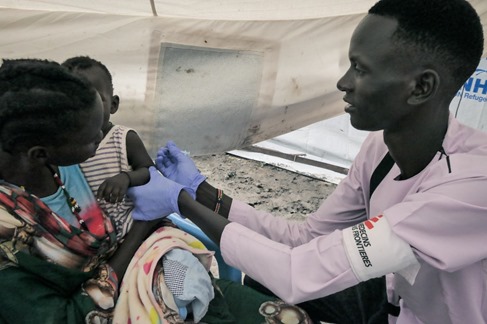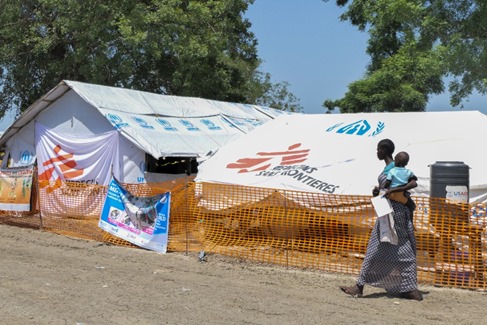By Bunmi Yekini

As World Immunisation Week draws global attention to life-saving vaccinations, Médecins Sans Frontières (MSF) is calling on Gavi, the Vaccine Alliance, to deepen collaboration with humanitarian organisations and governments to ensure more children, particularly those in fragile and conflict-affected regions, receive routine immunisations.
In a joint statement by Victorine de Milliano, vaccine policy and advocacy advisor, and Pamela Onango, medical coordinator in South Sudan, MSF warned that delays in emergency vaccination responses, like the one witnessed in Western Equatoria, South Sudan, can have deadly consequences.
“Thousands of people fell ill and at least thirteen died, including seven children under five,” the authors revealed, describing the impact of a measles outbreak declared on January 10, 2024, which took nearly four months to trigger a vaccination response due to logistical and bureaucratic delays.
The health NGO, which has decades of experience vaccinating in some of the world’s most difficult humanitarian settings, criticized the slow-moving coordination often required to access vaccines, which they say wastes critical time and risks lives.
“We know the delay in South Sudan was not exceptional,” said de Milliano. “Such slow-moving coordination wastes valuable time and risks lives.”

Gavi is currently developing its new five-year strategy, including a “Fragility and Humanitarian Approach,” to address the immunisation gap in areas most affected by conflict, displacement, and poor infrastructure. MSF argues that this strategy must include permanent, flexible frameworks for humanitarian organisations to access in-country vaccine stockpiles without repeated negotiations.
“Instead of having to negotiate on a case-by-case basis, Gavi should help develop standing agreements,” said Onango. “That would allow us to complement national immunisation efforts and reach children who currently fall outside these programmes.”
Read Also: MSF Mourns Second Staff Killing in Two Months Amid Escalating Violence in Eastern DRC
One such effort proved successful in South Sudan’s Upper Nile State, where MSF operated mobile clinics to screen and vaccinate displaced people. “This relatively simple intervention worked because we had the vaccine supplies and space to operate,” she added.
MSF is also advocating for more inclusive vaccine eligibility policies. Current practices often limit vaccinations to children under two, even though older unvaccinated children remain at significant risk. During the measles outbreak in Western Equatoria, 20% of children treated at MSF-supported clinics were over five.
“We urgently need country policies that allow for vaccination until at least the age of five,” said de Milliano. “This must be backed by dedicated financial support from an ambitiously funded Gavi.”
The group emphasised that reaching the last mile in humanitarian settings is costlier due to security, geography, and infrastructure challenges, making sustained donor support essential.
“It’s abundantly clear that we in global health must work better together,” the statement concluded. “Only then can every child, regardless of where they live, have a real shot at life.”
